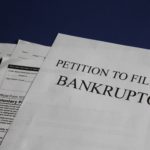You’ve spent years struggling with credit card debt, and the balances are still high. Unfortunately, this situation is more common than you may realize, you only need to have a look at the average credit card debt in America. Only paying the minimum means you could be stuck with those pesky credit card balances for years to come.
Even if you devise the perfect plan to repay what you owe, the reality is you’ll likely spend a fortune in interest and spend years making payments. That’s unless you allocate a sizable portion of your monthly income to pay the balances down.
But what if you don’t have a ton of disposable income to aggressively attack your credit card debt? A debt settlement program could help you meet your debt-payoff goal in as little as 24 to 48 months.
What Are Debt Settlement Programs?
Debt settlement programs are a form of debt relief that helps consumers resolve outstanding debt in less time. Suppose you hire a debt settlement company, they will negotiate with creditors on your behalf in an attempt to reduce outstanding credit card balances.
Should You Enroll in a Debt Settlement Program?
It depends on your financial situation, so you should explore all debt relief options to understand which one may be better for you. For example, if you follow the debt settlement process till the end, you could resolve your high-interest unsecured debts faster than making your minimum payments, and this option is generally more affordable than a debt management plan.
While there are benefits to enrolling in a debt settlement program, you also want to consider drawbacks. Your credit rating will likely be impacted when you register, as most consumers stop paying creditors to expedite the settlement process. There’s also the risk of potential legal action from creditors or increased collection calls.
Ultimately, you have to decide if debt settlement makes sense for you. If you have more than $7,500 in unsecured, high-interest debt and are experiencing a financial hardship that’s preventing you from making payments, a debt settlement program could be a good fit.
How Debt Settlement Programs Work Step by Step
Before you enroll, it’s best to understand how these programs work. Here’s a step-by-step breakdown of the process:
1. Assess What Debt You Want to Pay Off
Review your unsecured debt accounts and note those that are currently delinquent or have several late or missed payments.
Secured debts aren’t eligible for debt settlement, so leave those accounts off the list, even if they’re causing financial distress.
2. Get a Free Evaluation With a Debt Settlement Company
Reach out to a debt settlement company to discuss your situation. Reputable companies usually offer free debt evaluations via phone, which will analyze your unsecured debts to determine if you’re eligible for a debt settlement program. If you are eligible, they will tailor a program that works for your budget and helps you meet your financial goals.
3. Review Settlement Offers Negotiated by the Company
Upon enrollment in the program, you will make set monthly deposits into an FDIC-insured dedicated account. Once the account reaches a certain balance, the debt settlement company will begin negotiations with your creditors to settle your outstanding debts for a fraction of what’s owed.
4. Accept a Debt Settlement Agreement
The debt settlement company will contact you each time they finish a debt negotiation and reach an agreement with your creditors. If you agree, you will authorize and approve the settlement, and the creditors will be paid directly from your dedicated account.
5. Complete Your Debt Settlement Program
Continue to make monthly deposits and monitor your progress until each debt enrolled in the program is settled.
Types of Debt You Can Enroll in Debt Settlement Programs
Generally, unsecured debts that aren’t tied to assets are eligible for enrollment in a debt settlement plan. These include credit cards, personal loans, department store charge cards, some private student loan debt, and medical bills.
However, secured debts, like auto loans, home loans, and federal student loans linked to assets do not qualify for inclusion in debt settlement programs.
Things to Consider When Choosing a Debt Settlement Company
Unfortunately, there are bad apples in the debt settlement industry you want to avoid. Here are some important considerations when evaluating debt settlement companies:
Fees: How Much Do Debt Settlement Services Cost?
It depends on the debt settlement company—most charge between 15 and 25 percent of the settlement amount once an offer is authorized.
Credit Score: How Does a Debt Settlement Program Affect Your Credit Scores?
When you settle an account, it’s marked as settled instead of being paid in full, and the negative mark could remain on your credit report for up to seven years. Some consumers also choose to stop making payments to creditors while enrolled in a debt settlement program to expedite the process. This results in late payments that could negatively impact credit scores.
However, FICO score recovery is possible if you start rebuilding your credit profile and practice sound debt management habits. Commit to making timely payments on your accounts and keeping your credit card balances low.
Reviews: Where Can You Find Verified Reviews of Trustworthy Debt Settlement Companies?
Refer to Trustpilot and the Better Business Bureau (BBB) for verified reviews of reputable debt settlement companies.
Memberships: Are They Officially Registered with a Nationally Recognized Trade Association?
Trade associations, like the American Fair Credit Council, uphold their members to high standards. Debt settlement companies who are a part of the organization must also adhere to the industry rules and regulations set forth by the Federal Trade Commission (FTC).







